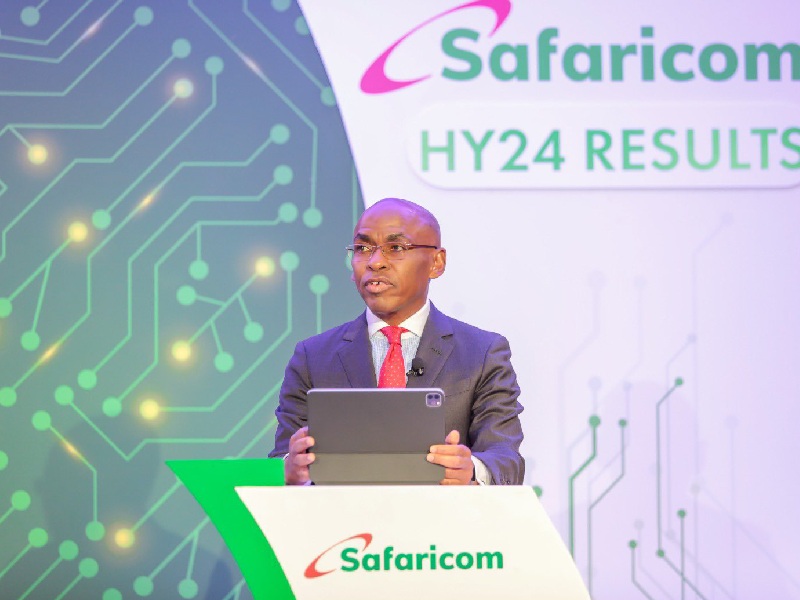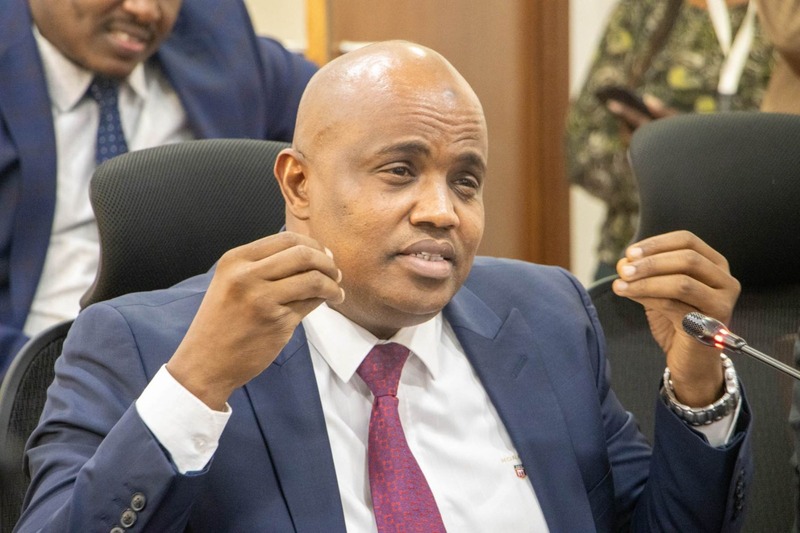Safaricom denies claims of colluding with police to breach customer privacy

On Wednesday, the DCI also denied the claims, saying the police only rely on mobile service providers for a small percentage of their investigations.
Leading mobile service provider Safaricom has denied claims that it is abusing its customers’ data privacy by sharing their information with security agencies and other third parties.
In a statement, the telco said it respects its customers' privacy and adheres strictly to the country's data protection laws.
More To Read
- Kenya’s 5G users hit 1.5 million as adoption accelerates
- Kenyans invited to give views on proposed partial sale of government’s Safaricom stake
- Ndindi Nyoro questions government’s decision to sell 15 per cent Safaricom stake
- Safaricom rolls out Daraja 3.0 in major M-Pesa API redesign
- Safaricom announces early-morning Fuliza system upgrade on November 17
- Kenya eyes wider telecom connectivity in next decade
"As such, we do not share any customer data unless explicitly required of us via a court order," the company said.
The statement follows an expose by the Daily Nation that alleged that the police have been using mobile phone data to track down and capture suspects with the help of telcos, particularly during the Gen Z protests that saw over 60 protesters killed.
According to the article published on Tuesday, Safaricom embedded Neural Technologies, a data management system in its internal systems allowing security services virtually unrestricted real-time access to Kenyans' call data, allegations that the telco denied.
On its part, the firm said it onboarded Neural Technologies in July 2012 to implement a fraud management system (FMS) on all its business lines including its money system
"Neural Technologies is a global brand operating in over 30 countries providing support to Telcos and utility companies to prevent and detect fraud with no third-party access. Finally, we would like to reassure our customers that we have always been transparent and honest in how we engage with our stakeholders, and we will continue to do so in order to maintain the trust that we have built over the years," the statement said.
On Wednesday, the Director of Criminal Investigations also denied the claims, saying the police only rely on mobile service providers for a small percentage of their investigations.
"On the issue of police conspiring with mobile service providers, we don't do that completely. If we are interested in getting information from the service providers, we do so through lawful means. We go to the courts, swear affidavits, and serve that order to the service providers. It is only after we get the orders that we get the service providers to work with us. As we progress with our investigations, we don't entirely rely on mobile phones, the mobile phone analysis only contributes to one per cent of our investigations and in most cases where we are able to successfully investigate, it's a result of our forensic analyses and collection of evidence. The DCI and the NPS do not entirely rely on mobile service providers," said the Director of the Directorate of Criminal Investigations Mohamed Ibrahim Amin.
Top Stories Today












































